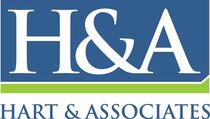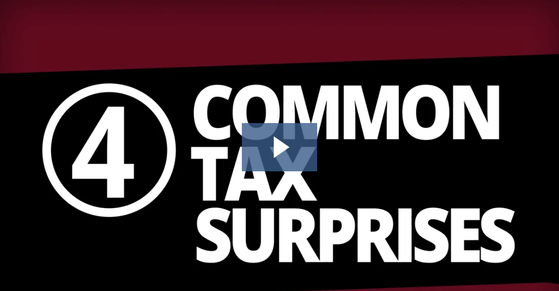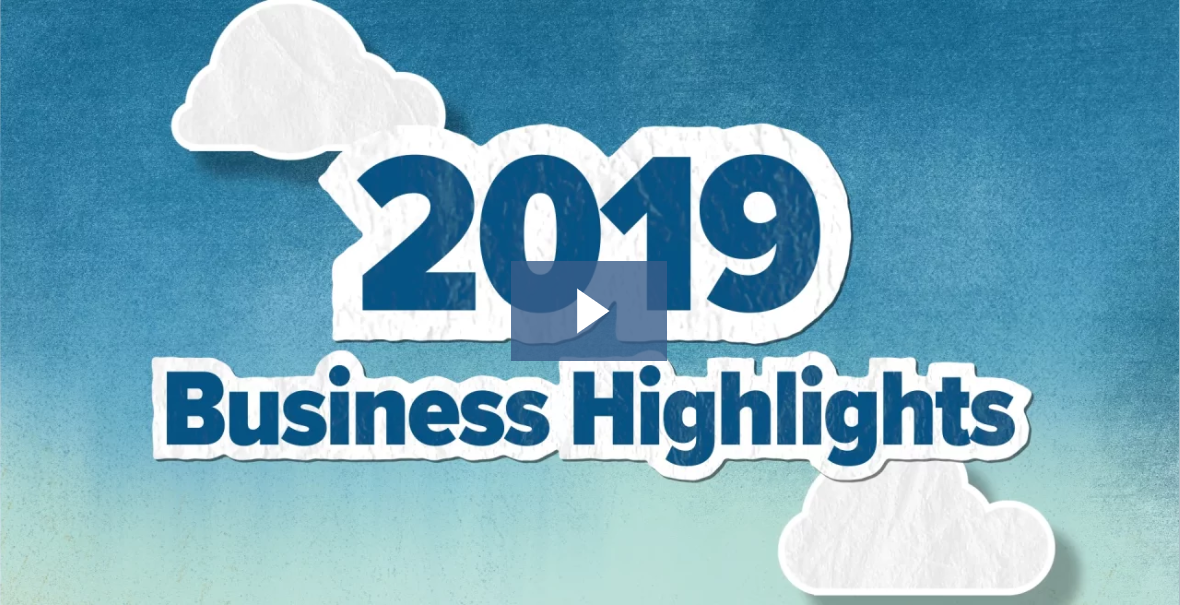Communicating your goals Too many families spend little to no time talking about money, and this habit lowers the financial literacy of everyone in the household. Do you know what goals each of your family members have around money? Talking about money – more than what bill is due when – will strengthen everyone’s financial resilience in your family. You may want to set family goals as well as encourage everyone to set individual financial goals. This may or may not include preparing a budget and agreeing on plans, including a savings plan, a debt reduction plan, and others. Systems and lists Do you use an accounting system to store your financial records? Or do you have Excel worksheets? Is it clear where they are located on your computer? Do your loved ones know how to find these items if something happens to you? Now that so many things are digitized, it’s not as easy as it has been in the past. You can’t just label a filing cabinet drawer and say “everything is in here that you need.” Your financial records might be in a hundred different places on your computer. Being organized and planning for a smooth financial future for your loved ones means making a list of instructions on how to access all of your financially-related digital assets. Your list might include:
And that’s just a start. You may not want to share your passwords with certain family members. If this is the case, you can still record your instructions and store them away for safekeeping, providing access information later. Backups If your computer crashes, will you be able to recover your financial files? Taking periodic backups will prevent a loss of records. What to keep in case of an audit You hope it will never happen, but if it does, are you prepared for an audit with the IRS or a state agency? Do you know what records to keep and for how many years? Financial confidence Having good documentation, sharing financial knowledge and goals, and making a backup plan will boost your financial confidence. You will be more prepared than most households when it comes to financial safety. How financially resilient do you feel? Taking into consideration the above ideas will help you stay one step ahead. If you need assistance implementing these, please feel free to schedule a consultation. This is general information and should not be acted upon without first determining its application to your specific situation. Please contact us, your CPA or tax adviser for additional details.
Why pay more for software and services than necessary? Check out our Resources page for information on discounts available to our clients.
Even though the benefit of a tax credit traditionally isn’t available until after the tax return for the year has been filed, for 2021 the new tax law included a provision to get the credit benefit into the hands of taxpayers as quickly as possible and charged the Secretary of the Treasury with establishing an advance payment plan.
Under this mandate, those qualifying for the credit would receive monthly payments starting in July equal to 1⁄12 of the amount the IRS estimated the taxpayer would be entitled to by using the information on the 2020 return. If the 2020 return had not been filed or processed yet by the IRS, the 2019 information was to be used. However, since the IRS only estimated the amount of the advance payments, some taxpayers may have received too much and others not enough. Thus, the payments received must be reconciled on the 2021 tax return with the amount that each taxpayer is actually entitled to. Those who received too much may be required to repay some portion of the advance credit while some may be entitled to an additional amount. To provide taxpayers with the information needed to reconcile the payments, the IRS has begun sending out Letter 6419, an end-of-year statement that outlines the payments received as well as the number of qualifying children used by the IRS to determine the advance payments. For those who filed jointly on their prior year return, each spouse will receive a Letter 6419 showing the advance amount received. Do not discard the letter(s) from the IRS as they will be required to properly file 2021 returns. Having received the advance credit payment, taxpayers will find their refunds will be substantially less than they may have expected, or they might even end up owing money on their tax return unless their AGI is low enough to qualify for the safe harbor repayment protection for lower-income taxpayers, in which case the excess advance repayment is eliminated or reduced. Example: If a taxpayer received advance child tax credit payments for two children based on the 2020 return, and the taxpayer doesn’t claim both children as dependents in 2021, the taxpayer would need to repay the excess on their return, unless they are protected by the safe harbor provision. It is also possible that one taxpayer could have received the advance child tax credit payments based on their 2020 return and not have to make a repayment under the safe harbor rule, while another taxpayer, who can legitimately claim the child, can get the credit on their 2021 tax return. This is most likely to happen when the parents are divorced. So, there’s the potential for the child tax credit to be received by both parents. If you have questions about the Child Tax Care Credit or would like assistance with filing your tax return, please reach out. We'd be happy to help!
This is general information and should not be acted upon without first determining its application to your specific situation. Please contact us, your CPA or tax adviser for additional details.
This was the case with millions of 2020 returns of taxpayers who received unemployment compensation and had filed before Congress passed a law that retroactively exempted up to $10,200 of 2020 unemployment income per filer (that provision has not been extended to 2021). Human review was also required for a significant number of returns on which the Recovery Rebate Credit had to be reconciled with the Economic Impact Payments #1 and #2. Similar issues are likely to affect 2021 returns, especially those where taxpayers received Advance Child Tax Credit (ACTC) payments and/or Economic Impact Payment #3, both of which must be reconciled on the 2021 return. Thus, to avoid return processing delays it is important to include the correct amounts received when doing the reconciliation. In January the IRS began issuing Letters 6419 (for the ACTC) and 6475 (for EIP #3) to taxpayers; these letters provide the information needed for making the reconciliation calculations. Be sure you provide these letters to your tax return preparer. Having an accurate tax return can avoid processing delays, refund delays and later IRS notices. Despite reduced staffing and the continuing pandemic, the IRS projects that for this tax season they’ll process electronically filed returns and pay refunds that are designated to be direct deposited in the taxpayer’s bank account within 21 days of receiving the return. While this turnaround time can’t be guaranteed, the earlier you file, the better the chance that you’ll see your refund within that time frame. If the IRS systems detect a possible error, missing information, or there is suspected identity theft or fraud, the IRS may need to correspond with the taxpayer, requiring special handling by an IRS employee. In that case, it may take the IRS more than the normal 21 days to issue any related refund. Sometimes the IRS can correct the return without corresponding, and the IRS will then send an explanation to the taxpayer. To stop the filing of fraudulent returns, the IRS is prohibited by law from issuing a refund from a return where the Earned Income Tax Credit or Additional Child Tax Credit is claimed until after mid-February. However, that doesn’t prevent taxpayers from filing their returns before then. Taxpayers generally will not need to wait for their 2020 return to be fully processed to file their 2021 tax returns and can file when they are ready. So, if you filed your 2020 return, but the IRS has still not processed it, don’t let that stop you from preparing and filing your 2021 return. The best advice is don’t procrastinate in filing your return, even though the IRS may be bogged down. In addition to return processing woes, the IRS has had customer service problems, specifically the lack of enough IRS representatives to answer the phone in response to taxpayers’ questions. Last tax season, because of Covid-19-related tax changes and staffing challenges, more than 145 million calls were received by the IRS phone system from January 1 – May 17, more than four times the number of calls in an average year. Alas, the Service was able to answer only about 10% of those calls, and callers who were lucky enough to have their calls answered generally had extremely long wait-times before actually being able to speak with an IRS employee. The IRS encourages taxpayers to go to the IRS.gov website to search for answers to their tax questions instead of calling the Service, but that often isn’t an adequate substitute for talking personally to a knowledgeable individual. Those who have their returns prepared by a tax pro have the benefit of being able to contact their tax professional with tax questions instead of being frustrated trying to reach or deal with the IRS. Given how understaffed the IRS is, it is more important than ever for taxpayers to have their returns professionally prepared. If you are an existing client and have questions, please give this office a call. If you have been trying to do your own tax return and would like professional preparation, we are here to assist you. This is general information and should not be acted upon without first determining its application to your specific situation. Please contact us, your CPA or tax adviser for additional details.
Life changes and decisions related to money can lead to surprises at tax time. How do you avoid four common surprises? Check out this video for details.
And please don't hesitate to give us a call or schedule an appointment if you want to discuss your personal tax situation.
How have recent tax changes affected your business this year? Find out more in this tax highlights video.
And if you haven't scheduled your tax appointment yet, we encourage you to do so soon!
The information presented is of a general nature and should not be acted upon without further details and/or professional guidance. For assistance in identifying and utilizing all the tax deductions to which you are entitled, please contact us, your CPA or tax preparer.
Check out the 2019 Fall/Winter edition of our quarterly newsletter. Topics include:
And please don't hesitate to contact us or schedule a consultation if we can be of assistance!
Because so many fraudulent tax returns are filed right after e-filing opens up in January, the IRS requires 1099-MISCs for NEC to be filed by January 31 and will not release refunds for individual income tax returns that include the earned income tax credit until the NEC amounts can be verified.
Thus, the due date for filing 2019 1099-MISC forms for NEC is January 31, 2020. This is also the same due date for mailing the recipient his or her copy of the 1099-MISC. It is not uncommon for a business or rental property owner to have a repairperson go out early in the year, pay him or her less than $600, use his or her services again later in the year, and have the total paid for the year be $600 or more. As a result, the business or landlord may have overlooked getting the needed information from the individual to file the 1099s for the year. Therefore, if you own a business or are a landlord, it is good practice to always have individuals who are not incorporated complete and sign an IRS Form W-9 the first time you engage them and before you pay them. Having a properly completed and signed Form W-9 for all independent contractors and service providers will eliminate any oversights and protect you against IRS penalties and conflicts. If you have been negligent in the past about having the W-9s completed, then it would be a good idea going forward to establish a procedure for getting each non-corporate independent contractor and service provider to fill out a W-9 and return it to you. The government provides IRS Form W-9, Request for Taxpayer Identification Number and Certification, as a means for you to obtain the vendor’s data you’ll need to accurately file the 1099s. It also provides you with verification that you complied with the law in case the vendor gave you incorrect information. We highly recommend that you have potential vendors complete a Form W-9 prior to engaging in business with them. The W-9 is for your use only and is not submitted to the IRS. The penalty for failure to file a required information return due in 2020, such as the 1099-MISC, is $270 per information return. The penalty is reduced to $50 if a correct but late information return is filed no later than the 30th day after the required filing date of January 31, 2020, and it is reduced to $110 for returns filed after the 30th day but no later than August 1, 2020. If you are required to file 250 or more information returns, you must file them electronically. In order to avoid a penalty, copies of the 1099-MISCs you’ve issued for 2019 need to be sent to the IRS by January 31, 2020. The forms must be submitted on magnetic media or on optically scannable forms (OCR forms). Note: Form 1099-MISC is also used to report other types of payments, including rent and royalties. Payments to independent contractors are reported in box 7 of the 1099-MISC, and the dates mentioned in this article apply when box 7 has been used. When the 1099-MISC is used to report income other than that in box 7, the due date to the form’s recipient is January 31, 2020, while the copy to the government is due by February 28, 2020. If you have any questions, please call us or schedule a consultation. Not only do we offer 1099 preparation for submission to the IRS along with recipient copies and file copies for your records, but we assist with Form W-9 requests and management year round. (If you already obtained Forms W-9 from your contractors, feel free to use the 1099 worksheet to provide this office with the information needed to prepare your 1099s.)
This is general information and should not be acted upon without first determining its application to your specific situation. Please contact us, your CPA or tax adviser for additional details.
This is general information and should not be acted upon without first determining its application to your specific situation. Please contact us, your CPA or tax adviser for additional details.
With the arrival of 2020, another tax season is upon us. To ensure you are prepared for your tax appointment, please review the video below. If you have any questions or need to schedule your tax appointment, please give us a call or schedule an appointment.
This is general information and should not be acted upon without first determining its application to your specific situation. Please contact us, your CPA or tax adviser for additional details.
|
AuthorSuccessfully meeting the challenges inherent to new and smaller businesses provides me with a special type of satisfaction. Archives
February 2022
Categories
All
|











 RSS Feed
RSS Feed







